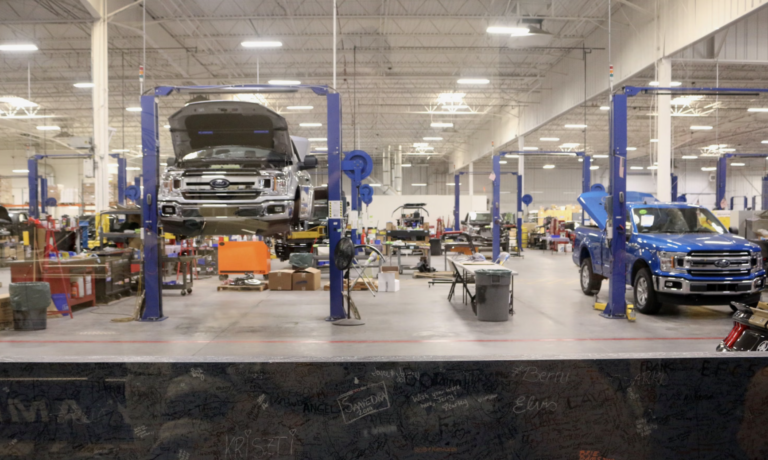
Car depreciation is one of the most significant hidden costs of vehicle ownership. While most car buyers focus on the sticker price, savvy shoppers also consider how much value their car will retain over time. Depreciation refers to the reduction in a car’s value over time, and it varies significantly by brand and model.
In this blog, we’ll break down how different car brands compare in depreciation, what factors influence these rates, and why understanding depreciation can save you money in the long run.

How Car Brands Compare in Depreciation
Based on research, the average 2024 model-year vehicle retains about 42.4% of its original value after 5 years, meaning depreciation eats away nearly 60% of the initial purchase price. However, this figure varies greatly by brand:
Best Brands for Resale Value
- Toyota: With a 5-year depreciation rate of 34.69%, Toyota vehicles retain about 77.81% of their value, making them an excellent choice for long-term investment. This aligns with Toyota’s reputation for reliability and low maintenance costs.
- Mazda: Depreciating at 40.21%, Mazda vehicles have an average resale value of 76.98%. Known for sporty designs and solid reliability, Mazda balances affordability and value retention.
- Honda: With a depreciation rate of just 22.83%, Honda vehicles hold their value exceptionally well, retaining 52.51% of their resale value. This is due to Honda’s consistent safety and reliability ratings.
- Subaru: Known for its all-weather capability, Subaru cars depreciate at a rate of 35%, maintaining a resale value of 57.81%.
RELATED: Carol Roth: The 3 Life Situations People Aren’t Prepared For
Brands with Faster Depreciation
- Luxury Brands (BMW, Mercedes-Benz, Audi, Maserati): These brands often depreciate faster, with 5-year depreciation rates ranging from 50% to 60%. For example:
- BMW and Mercedes-Benz lose about 50% of their value within five years.
- Audi fares worse, with a depreciation rate of 55.3%.
- Maserati depreciates the fastest at 60%, retaining just 40% of its value after five years.
- High maintenance costs and the preference for new luxury models drive down resale values in this category.
- Nissan: With a depreciation rate of 50%, Nissan sits in the middle of the pack. While generally affordable upfront, Nissan’s resale value isn’t as strong as brands like Toyota or Honda.

Luxury with Better Value Retention
- Lexus: Lexus, Toyota’s luxury brand, holds up well against depreciation, with a 46.21% rate and a resale value of 53.82%. Lexus combines luxury with reliability, making it a standout in its category.
Factors That Influence Depreciation
Several factors contribute to a vehicle’s depreciation rate:
- Mileage and Maintenance History: Cars with lower mileage and a clean maintenance record depreciate more slowly. Keeping up with regular service appointments and avoiding excessive wear can help maintain value.
- Make and Model Popularity: High-demand vehicles, like Toyotas and Hondas, tend to depreciate less because they are easier to resell.
- Accident History: Vehicles with a history of accidents lose value faster than those with a clean record.
- Fuel Efficiency: As fuel prices rise, vehicles with better gas mileage tend to hold their value better.
- Safety and Reliability Ratings: Brands like Toyota, Honda, and Subaru maintain their value because of their strong reputations for safety and reliability.
RELATED: Insurance Changes Post-Wedding: What Newlyweds Need to Know
Why Depreciation Matters
Understanding depreciation is crucial for making informed decisions about car ownership. Here’s why it matters:
- Impact on Your Wallet: Depreciation is often the single largest cost of owning a car. Choosing a brand with a lower depreciation rate can save you thousands of dollars over the years.
- Resale Value: If you plan to sell your car or trade it in, a higher resale value means more money in your pocket.
- Leasing vs. Buying: Depreciation affects lease payments, as these are based on the difference between the car’s original price and its expected value at the end of the lease term.
Tips to Minimize Depreciation
- Choose Reliable Brands: Stick to brands with proven resale value, like Toyota, Honda, and Subaru.
- Buy Gently Used Cars: Cars experience the most depreciation in their first few years. Buying a car that’s 2-3 years old can save you money.
- Maintain Your Car: Regular maintenance, avoiding accidents, and keeping detailed service records can slow depreciation.
- Consider Fuel Efficiency: With fuel prices on the rise, a fuel-efficient vehicle can boost resale value.
- Research Before Buying: Look up depreciation rates and resale values for the specific make and model you’re considering.
Final Thoughts
Car depreciation is an inevitable part of ownership, but understanding how it works and which brands hold their value best can help you make smarter financial decisions. Whether you’re buying a new car, trading in your old one, or simply planning for the future, focusing on brands like Toyota, Honda, and Subaru can minimize your losses. And if you’re drawn to luxury vehicles, be prepared for higher depreciation and maintenance costs.
By doing your homework and keeping your vehicle in good condition, you can maximize your investment and make car ownership a more financially sound experience.
NEXT: The 5 Golden Rules: Protecting Your Investments in Uncertain Times